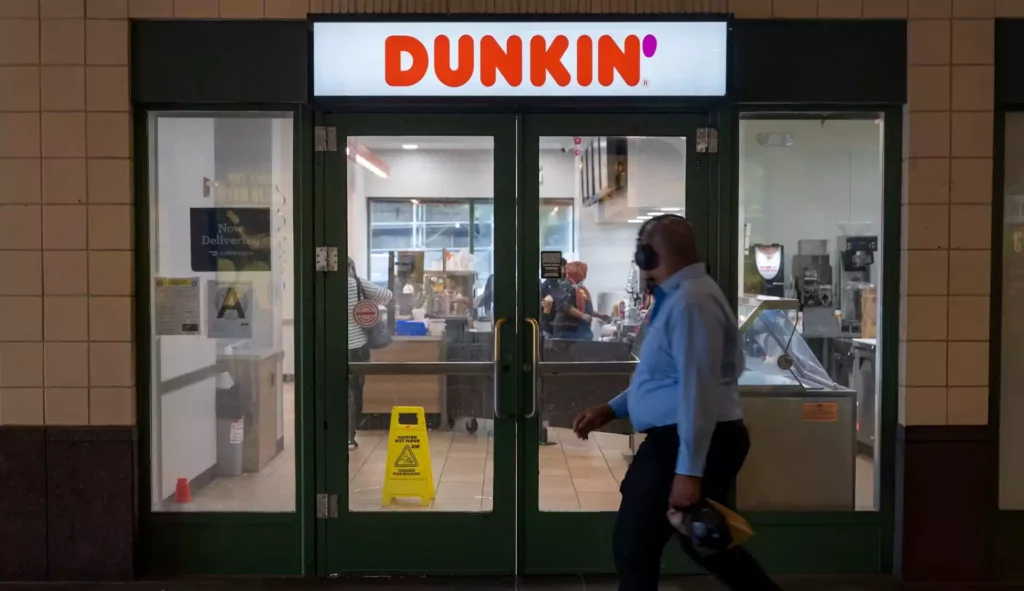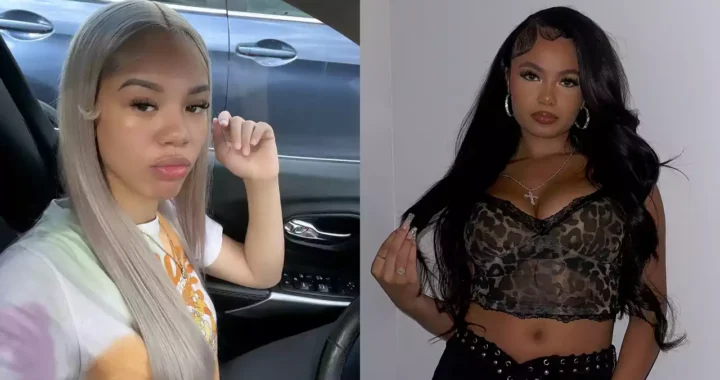Dunkin’ Donuts Faces Boycott Calls After Rumble CEO’s Controversial Claims
4 min read
Spencer Platt/Getty Images
Dunkin Donuts Boycott Trends: Alleged Pressure on Rumble Over Steven Crowder Sparks Online Backlash.
Dunkin’ Donuts, the beloved American coffee and baked goods chain, is facing a wave of boycott calls after a controversial social media post by Chris Pavlovski, the founder and CEO of Rumble. On August 8, Pavlovski claimed that Dunkin’ Donuts and the North American division of Diageo, a leading beverage company, pressured Rumble to sever ties with conservative commentator Steven Crowder in order to secure advertising revenue. The hashtag #BoycottDunkinDonuts quickly began trending on X (formerly Twitter) as a result.
Pavlovski, whose platform Rumble is known for hosting content from various political perspectives, stated that both Dunkin’ Donuts and Diageo wanted Rumble to distance itself from what they described as the platform’s “right-wing culture.” In response, Pavlovski refused their demands, asserting that Rumble does not discriminate and that all cultures are welcome on the platform. This statement, along with the allegations, sparked a significant backlash from conservatives and supporters of the MAGA movement, who launched a coordinated boycott campaign against Dunkin’ Donuts, likening it to the 2023 boycott of Bud Light.
Both @Diageo_NA and @dunkindonuts want us to drop @scrowder and get away from "right wing culture" in order to get ad dollars from them.
— Chris Pavlovski (@chrispavlovski) August 7, 2024
My response: No, we don't discriminate. All cultures are welcome on Rumble.
Steven Crowder, a polarizing figure who hosts the political podcast “Louder With Crowder” on Rumble, has been a focal point of controversy for years, which likely contributed to the concerns from the brands. Crowder moved his show to Rumble after facing numerous issues on YouTube due to his controversial content. Pavlovski’s tweet suggested that Dunkin’ Donuts and Diageo were uncomfortable with Crowder’s presence on the platform and were using their advertising dollars to influence content decisions.
The boycott campaign saw a flurry of activity on X, with many conservative users expressing their outrage at what they perceived as corporate censorship and an attack on free speech. Some of the most vocal critics called for Dunkin’ Donuts to face the same consequences as Bud Light, which saw a significant drop in sales following a conservative-led boycott earlier in the year.
Here are the emails we received from both @InspireBrands / @dunkindonuts and @Diageo_NA
— Chris Pavlovski (@chrispavlovski) August 8, 2024
Inspire Brands / Dunkin Donuts didn’t want to advertise on Rumble because of “right wing culture”, and Diageo doesn’t want to advertise when creators like Crowder are on Rumble. pic.twitter.com/NJAHv44NuY
On the other side of the debate, many users criticized the boycott, labeling it as an overreaction and an example of conservative cancel culture. These users argued that Dunkin’ Donuts, like any other company, has the right to choose where its advertising dollars go and to distance itself from content that does not align with its brand values. However, even those opposing the boycott inadvertently c ontributed to the hashtag’s trending status, as they used #BoycottDunkinDonuts to voice their disapproval of the boycott itself.
Adding fuel to the fire, Pavlovski shared screenshots of alleged emails from representatives of Dunkin’ Donuts and Diageo. The emails reportedly expressed the companies’ concerns about advertising on Rumble due to the platform’s association with right-wing figures like Steven Crowder. One email, allegedly from a Dunkin’ Donuts spokesperson, stated, “I would be opposed to showing up on the current version of the platform — the right-wing culture of the site is too polarizing from a brand suitability standpoint today.” A similar email from Diageo North America, also shared by Pavlovski, indicated a strong opposition to advertising on a platform hosting content from figures such as Crowder and Alex Jones.
So #BoycottDunkinDonuts is the #1 trend in the USA right now thanks to you.
— Catturd ™ (@catturd2) August 8, 2024
They thought they could bully Rumble into dropping their biggest podcasts behind the scenes. I know this for a fact.
It’s time to BudLight- @dunkindonuts
They think they can throw their billion… pic.twitter.com/SGH9ZBMBAD
As of now, neither Dunkin’ Donuts nor Diageo has issued an official public statement regarding the controversy. However, Diageo’s North American division made its Twitter account private, likely in response to the backlash.
The ongoing debate highlights the deep divisions within American society over issues of free speech, corporate responsibility, and political affiliation. While some see the boycott as a necessary stand against corporate overreach, others view it as an unnecessary and harmful example of cancel culture. The situation continues to evolve, with both sides of the debate remaining deeply entrenched in their positions. Whether this boycott will have a lasting impact on Dunkin’ Donuts remains to be seen, but it is clear that the controversy has struck a nerve across the political spectrum.
#MAGA being the party of cancel culture once again 😂💀 #BoycottDunkinDonuts
— ~naa~ (@naaa_38_aaaaa) August 7, 2024
Time to give Dunkin Donuts the Bud Light treatment. Boycott the hell out of them for their anti-conservative stance! #DunkinDonuts #BoycottDunkinDonuts pic.twitter.com/DqSP2Iqd7C
— Liberals Leaving (@LiberalsLeaving) August 8, 2024
- Also read: ScarLip Responds to Viral Video of Boyfriend’s Backhanded Compliment, Defends Relationship



